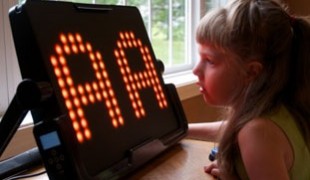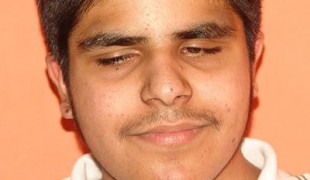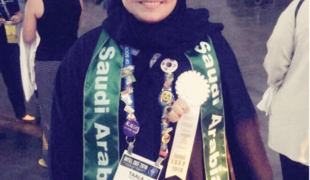- 8538
- 608
- 11
- 14
- 0
- Help Ukraine
About the solution
This device works by allowing users to upload text files, such as novels, using a USB stick. The text then appears in Braille via small physical ‘bubbles’ that rise and fall on demand.
It all started when the inventor was studying industrial engineering at the University of Sofia, and a blind colleague asked her to help to register for online classes because he couldn’t do it by himself.
“I was shocked. I went home and did some research. Then I realised that the technology boom over the past few years, with the advent of the Internet and smartphones, had not benefited everyone”, Kristina explained.
She made some research and realised that the existing devices that convert text into Braille cost thousands of euros and are hard to use.
“For example, they only display one line of text at a time. Their technology was invented 40 years ago and hasn’t changed since”, Kristina said.
Blitab is a device that converts any document into Braille. You can plug in a USB flash drive or connect to Wi-Fi. The tablet surface displays little dots, which we call “tixels” (from “tactile pixels”). Users can read a full page of text at a time. The tablet can also convert images by triggering dots that present the picture in 3D.
Kristina launched a crowfunding campaing, and then co-founded a startup in Vienna, in order to develop and bring the product to the market.
Blitab is still not available, but it can be pre ordered online, with prices ranging from $200 to $2,500.
Adapted from: http://www.technologist.eu/blitab-tablet-blind-people/
This solution shall not include mention to the use of drugs, chemicals or biologicals (including food); invasive devices; offensive, commercial or inherently dangerous content. This solution was not medically validated. Proceed with caution! If you have any doubts, please consult with a health professional.
DISCLAIMER: This story was written by someone who is not the author of the solution, therefore please be advised that, although it was written with the utmost respect for the innovation and the innovator, there can be some incorrect statements. If you find any errors please contact the patient Innovation team via info@patient-innovation.com
-
-
611
-
0
-
8884

Mother invents device to help hearing and visually impaired daughter
COMMUNICATION: Communicating, whether by speaking, listening, or other means
Reading
Studying
Blindness
Educational/Leisure device (book, toy, game...)
App (Including when connected with wearable)
Vision problems
Regaining sensory function
Promoting self-management
Improving Speech and Communication
Caregiving Support
Ophthalmology
United States
-
-
-
406
-
0
-
4548

Software to help blind people learn science
COMMUNICATION: Communicating, whether by speaking, listening, or other means
Studying
CAREGIVING
Blindness
App (Including when connected with wearable)
Strategy/Tip
Assistive Technology access
Vision problems
Regaining sensory function
Promoting self-management
Preserving Organ Function
Caregiving Support
Occupational Medicine
Ophthalmology
United States
-
-
-
558
-
4
-
8156

Student creates writing system for the visually impaired
Reading
Studying
Writing (letters, songs, peoms)
Visual Impairment
Blindness
Educational/Leisure device (book, toy, game...)
5 Senses support devices: (glasses, hearing aids, headphones...)
Vision problems
Regaining sensory function
Managing Neurological Disorders
Improving Speech and Communication
Ophthalmology
Pediatrics
Saudi Arabia
-
 en
en